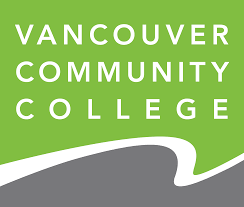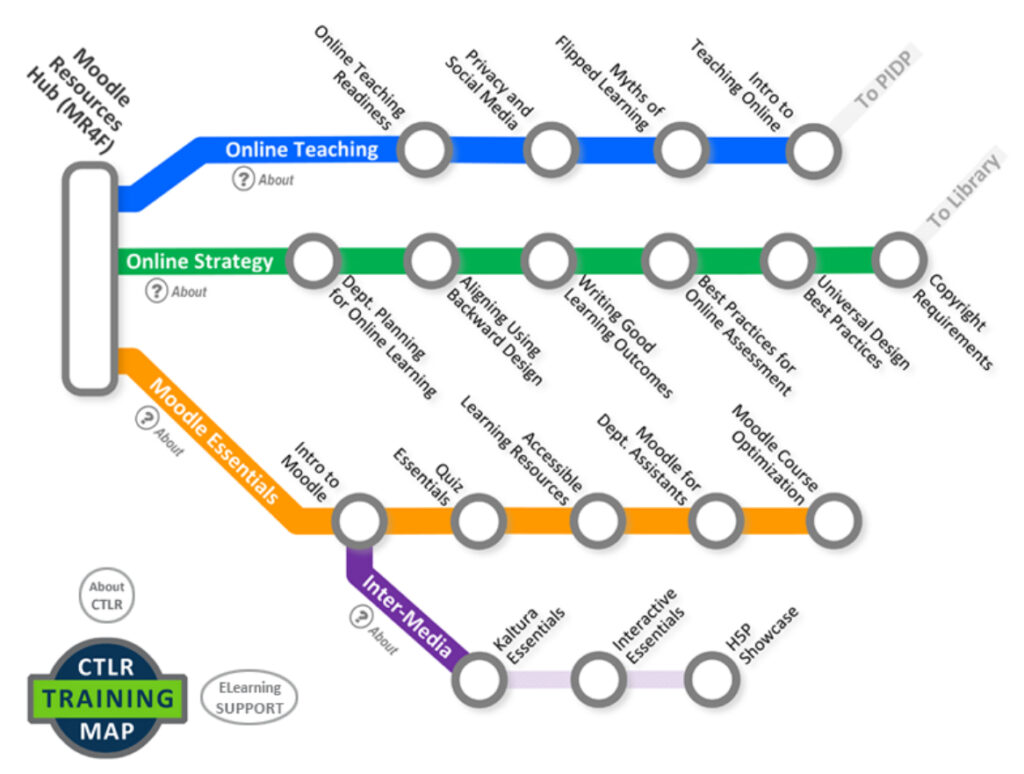[Institutional Update] Vancouver Community College

Contributed by Andrew Dunn, Manager, Online Learning Strategy and Design, VCC
Implementing an Online Learning Strategy at VCC
Vancouver Community College recently developed an Online Learning Strategy to help us meet the longer term aims of the college in using educational technologies. At the beginning of 2019 I was hired as the Manager, Online Learning Strategy and Design, with the goal of implementing and directing the strategy as we roll it out across the college.
Founded in 1965, VCC is the largest and oldest community college in British Columbia, with over 140 certificate and diploma programs. VCC has three campuses, Broadway, Downtown, and Annacis Island, serving more than 25,000 students annually.
To develop the Strategy, the college facilitated a year-long conversation about the current state of online learning, including whether to retain or change our LMS platform (the decision was made to retain Moodle), and how we could better support faculty to create and deliver online courses. Some of the challenges and opportunities that were identified include:
- The opportunity to develop policies and standards specific to online learning. In common with other post-secondary institutions, VCC has a range of policies and guidelines around privacy, records retention, and so on, but these don’t always relate directly to the digital learning environment.
- The underutilization of Moodle due to lack of skills and knowledge. A large proportion of our Moodle ‘courses’ are in fact file repositories shared among a team on instructors, rather than well-designed blended or self-paced courses. That said, a growing number of faculty are interested in developing better online courses and programs.
The Strategy is also designed to help us meet our intended future state of online learning at VCC:
- A strong reputation for online learning
- Enhanced student learning through educational technologies
- Adequately resourced online learning support
- Consistency in online course design
- Greater use of Moodle beyond that of a repository
- A culture change in regard to online learning at VCC
- Increased proportion of faculty proficient with the delivery of online programming
- Integrating emerging technologies with modern pedagogy
- A commitment to open source and OER materials, wherever feasible
The model for online course development at VCC is decentralized: a small eLearning Support team (a part of the Centre for Learning, Teaching, and Research) maintains Moodle and provides support to faculty, who in turn build their own online courses. This creates a number of challenges and is a departure for me personally, as in my previous roles (in health care in Canada, and in the university sector in Scotland) I have led or been part of a team that does the actual course development work. I’ve had to learn to let go when it comes to online courses I am working on, but don’t ‘own’!
So a year into the implementation, what have we achieved, and what have we learned?
In the area of policies and guidelines, we’ve created some online-specific guidelines around records management, use of social media in online courses, copyright adherence, accessibility and UDL. A challenge here has been the extent to which we can enforce guidelines – given that courses are created by faculty, how can we be sure that our guidelines are being followed? One possible solution we’ve come up with is to provide pre-course checklists to help faculty to self-police. We are also looking at proactively identifying issues with courses (e.g., videos without captioning) and reporting these to their course owners so they can be updated.
Perhaps the majority of the work over the past year has been around training for faculty. Given the decentralized model we operate, faculty need support when it comes to building a high-quality online course. We’re a small team and face-to-face support is not always available.
We identified three levels of support/training:
1. Just-in-time support: Faculty who have an immediate issue in their course that requires resolution (e.g., the course is not visible to students, or a quiz isn’t reporting the grades properly). To meet this need we are making use of the college’s online ticketing system to create a searchable knowledgebase of FAQs that can be updated whenever a new issue comes to light.
2. Short, self-paced learning modules: Our faculty are busy people, and don’t always have time to complete in-depth training, whether online or in-person. So we created a suite of short (15-20 minute) self-paced modules in Moodle covering a variety of topics, from making your course accessible to becoming a better online teacher. We hit upon the metaphor of a learner journey, from Moodle novice through to Power User. Being a transit user, I saw the opportunity to represent the learner journeys as a Training Map: learners can pick a line and select a ‘station’ along the line. There are no mandatory prerequisites, and learners can start or end wherever they like. In the longer term we would like to implement badging for completion of the courses in a particular line. The first iteration of the Training Map is shown below:

3. Lastly, we continue to offer ‘deeper dive’ training, including longer online courses, face-to-face workshops, and our annual Moodle Mini Moot, where faculty and CTLR get together to present our achievements from the previous year, and our plans for the next year.
Next steps
The main challenge with building an online training plan is that we tend to preach to the converted – face-to-face sessions and online course enrolments come from among a self-selecting sub-group of faculty who are already using Moodle, or are already enthused about online learning. A goal for the next 12 months is therefore to reach a wider audience. To this end we are partnering with marketing and communications at VCC to develop and implement a communications plan. “If you build it, they will come”, but only if they know it’s there!

